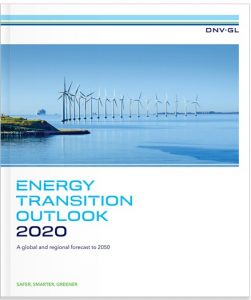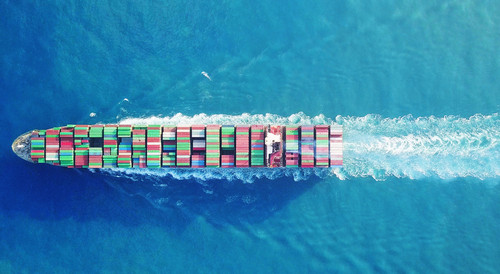Classification society DNV GL has called for policy makers to grasp the nettle and introduce regulations that will drive decarbonisation in the maritime sector and in other industries, including the so-called ‘hard to abate’ sectors.
Company CEO Remi Eriksen kicked off the online launch of DNV GL’s Energy Transition Outlook 2020 telling his virtual audience that the world is not decarbonising fast enough to meet the Paris Climate goals.
According to the DNV GL, global GDP growth this year will contract 6% as a result of the downturn caused by the Covid-19 pandemic, and that the world has seen a decline in emissions as a consequence of that economic slump.

However, Eriksen said, “If we wish to meet the Paris Climate change goals of maintaining global warming to 1.5°C above pre-industrial levels we would need to reduce emissions by the same amount as this year for every year up to 2050.”
He went on to say that the world is currently expected to overshoot the 1.5°C target by 2028 and by 2050 global warming will have reached 2.3°C above pre-industrial levels.
Essentially Eriksen believes that industry needs to adopt a system of carbon pricing and with post-combustion carbon capture and storage (CCS) to substantially reduce greenhouse gas emissions and prevent the worst effects of global warming.
Hard to abate industries, such as aviation, iron and steel trades, manufacturing and shipping, must be encouraged through policy to decarbonise at a faster rate, “The technology is there, it is the policy that needs to be developed,” argued Eriksen.
Andrea Sohmrn-Pao, the chairman of Singapore-based oil and gas company BW Group, also on the Energy Transition panel, pointed out that it is a real challenge to find zero carbon fuels. In order to make ammonia competitive we would need a carbon tax of US$278/tonne,” he said.
Panellists believed that a development of CCS technology for catching greenhouse gas emissions and then securing them under ground could prove a game changing technology, particularly as gas is likely to play a significant role for energy, surpassing oil by 2026 and peaking use by 2035. Natural gas is a fossil fuel and as such will not cut greenhouse gas emissions sufficiently, but combined with CCS technology it could be a transitional fuel.
Nick Savvides
Managing Editor







